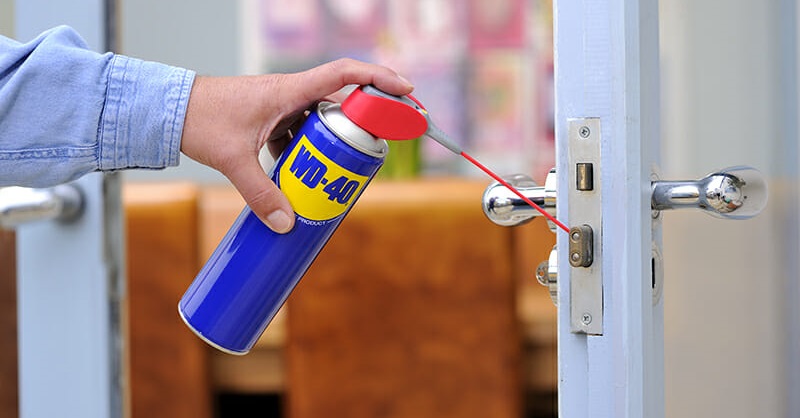In order for your locks to function at their maximum potential, they have to be properly taken care of and undergo regular maintenance. This is one simple thing that many homeowners tend to overlook, which is not an indictment of their character or the nature of their responsibility, it is simply the way things are. That is why your trusted locksmiths are here to give you their expert tips and advice on how to properly maintain your locks.
Some people might ask, why is it even important to maintain your locks? It is important to realize that your locks are an integral part of your home security. If your locks are not as strong as they should be, due to poor maintenance, then the security of your home will bear the consequences. In addition to this, homeowners will find themselves changing or repairing locks more times than they should. Locks that are old and not properly cared for are easily bypassed and they will also not operate the way that they were intended. Without further ado, here are some of the expert lock maintenance tips that will come in handy for you and your home.
Regularly Lubricate Your Lock
Lubricating your lock is an important maintenance tip that should be carried out annually. This practice will help increase the lifespan of your lock and ensure that it continues to work as intended. There are many locksmiths who suggest the use of WD-40 as a good lubricant, but sometimes it is better to use Tri-Flow. This lubricant uses less harmful chemicals that are not as harsh on the locking mechanism. Lubricating the lock on a regular basis will prevent the lock from sticking and it will also slow the process of rusting.
Homeowners should strive to lubricate their locks every few months, but if they cannot adhere to this, they should lubricate the lock as soon as it starts to become hard to use. One clear sign that the door lock has become hard to use starts when the lock begins to stick and when it no longer moves in a fluid motion.

Craft Spare Keys
Another expert tip that many homeowners overlook involves crafting a spare key for your locks. Aside from the fact that this is a good thing for homeowners to do anyway, it also helps increase the lifespan of your lock. Locks and keys are used on such a regular basis that people tend to overlook the fact that they go hand in hand. Properly maintaining your lock helps your key work well, and vice versa. In most cases, a key will begin to wear out far before a lock even shows minor signs of decreased functionality. Crafting a spare key allows you to switch out your keys as soon as one begins to wear down, which will help you keep your lock properly maintained.
I’m sure there are people wondering how having a spare key even helps maintain your lock. When a key is inserted into a lock, it works in conjunction with the components of the lock to either lock or opens the device. Each of these components (key and lock) has to be functioning properly in order for these actions to occur fluidly. Since keys tend to deteriorate faster than locks, the key will potentially malfunction and scratch against the lock with its continued use, which will then compromise the integrity of the lock.
Gently Clean Your Locks
Cleaning is a staple of properly maintaining anything, and the same concept applies to cleaning locks. Cleaning your locks will ensure that they stay strong and last longer. Locks are not only made up of the locking mechanism because the casing that houses the lock mechanism is also part of the lock itself. If the exterior of the lock deteriorates while the interior remains in pristine condition, the lock will still eventually have to be replaced. In this instance, both sides of the metaphorical coin need to be polished.
The process of cleaning your lock’s exterior will ensure that it remains safe from constantly being exposed to natural elements including dirt, dust, and grime. In addition to this, the act of cleaning your locks on a regular basis will also give you the opportunity to inspect them and make sure that everything is copacetic.
Once you set out to clean your locks, always be mindful of the materials, chemicals, and methods that you use to do this. It is important to make sure that you do not use cleaning products that are abrasive or moderately high in acidity. The best option is to use a damp rag and a gentle detergent, which will not cause any harm to your lock.
Make Sure Deadbolt Is Working Properly
This might sound redundant to some, but don’t get ahead of yourself. One of the key steps to maintenance is to make sure that all the components of the lock are working as they should. More specifically, it is important to make sure that your deadbolts and your latch are working properly.
It is important that the deadbolt and the latch are working as intended because if they are not, it can result in the lock being damaged as well as the door. This damage will leave any homeowner with a hefty bill. The deadbolt or latch should have enough space to extend and retract fully, and it should be securely set within the door when locked. Issues with the deadbolt and the latch have been known to escalate and damage locks so it is necessary to tackle this head-on before it spreads.
Clear Out Your Strike
Clearing out your strike plate is key to making sure that your locks are properly maintained. The strike can be easily clogged up with dirt, debris, and, in most high schools, gum. There have been cases where locks have been damaged by something as simple as a clogged strike, so it is important to make sure it is kept clear.
You May Need to Change your locks
Read this article about when you need to change the door locks: How to Know When to Change Locks
Conclusion
There is no magic art to properly maintaining your locks, it simply boils down to having the patience to check your locks and knowing what to look out for. It is a trait that homeowners should adopt because it not only saves them money over time but also helps increase home security. Locks are important, but many people tend to forget just how crucial they are to home security. Hopefully, these expert maintenance tips outlined above will give you some semblance of how to get the best out of your locks, while simultaneously setting them up to last.

